Rewatch is a regular column on Nerd Union where we watch a old movie or episode of one of our favorite TV shows and try to judge it against what we know now to be the good and the bad.
For years I have watched and loved many superhero films, so I figured if I was going to do one of these, I’d start with the daddy of them all, Superman: The Movie, the first big-budget feature film. Normally, I would look at this movie as its own self contained thing, but seeing the newly released trailer from Superman v. Batman: Dawn of Justice (Try saying that fast. I have to actually look it up to make sure I got the full name right. Think about how small the typeface will have to be on the side of that blu-ray disc you’re gonna buy in a year) got me thinking about how this relic of a movie compares to Man of Steel and the new slate of superhero movies we’ve been inundated with of late. First I’ll start with the bad, and move on to the things I think this film gets right.
The Special Effects
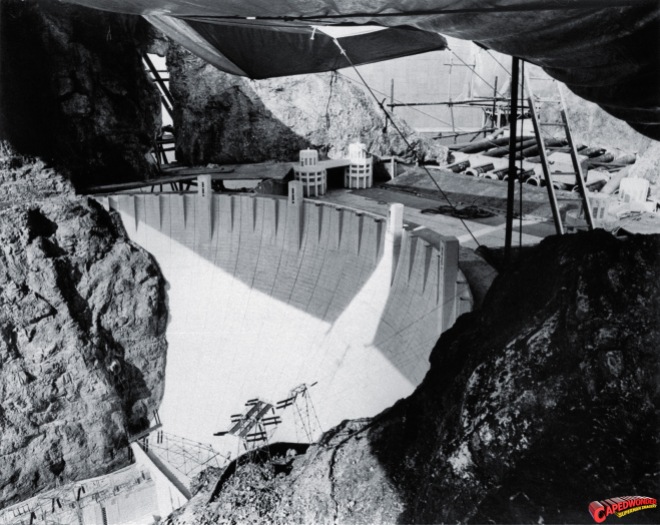
I’ve seen the original, non-special edition Star Wars films, the first two of which came out before and after Superman (1978), but even they had better effects than this movie. Granted, George Lucas had to create his own effects studio to make it happen, but it was possible to do better than this. Even still for the time they were created it was revolutionary and most of the shots of Christopher Reeves flying are believable. What is not believable are the miniatures they use, specifically the dam scene at the end. Even in slow motion its painfully obvious that this is a miniature using pebbles for boulders and a cup’s worth of water for a apocalyptic flood.
The Villains
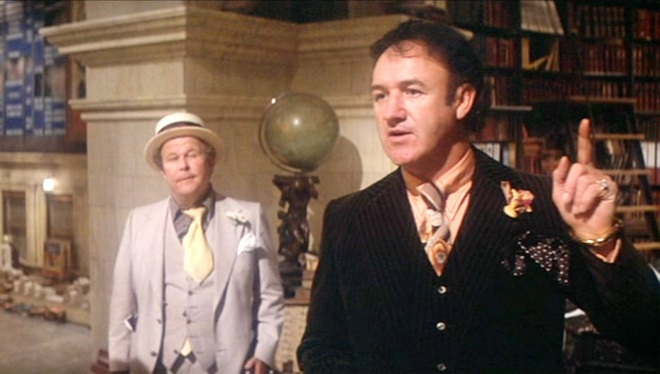
They are the worst. Otis is hilarious, but he is the least threatening thing about this movie, and without any frame of reference no one would have a clue that he was a oscar nominee. He accomplishes what his goals in every scene is: to be a bumbling fool. He is Pinky in this Pinky and the Brain scenario, except Pinky serves more of a purpose than Otis ever would. If that weren’t enough, Lex Luthor’s plan is insane. He reprograms two nukes to impact the San Andreas fault so as to make California fall into the sea. He would then own all the land east of the fault, making it prime real estate. That’s right. He is going to kill millions of people so he can turn a buck. The smartest man in the world and this is his master plan? This also leads me to one of the best things about this movie.
Lex Luthor
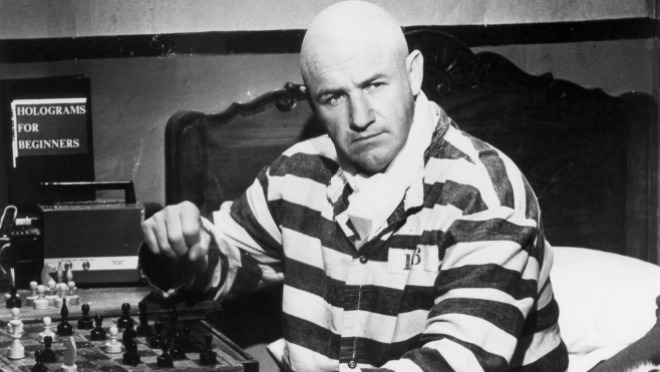
Lex ‘effing Luthor. In every other iteration of Lex the man is the genius antithesis of Superman. He is the brain and not the brawn, but he’s never this insane. This Lex Luthor is willing to kill millions just because he wants to get rich. He could get rich a million different ways, but instead settles on one that will cause the maximum amount of pain. If the Joker could focus long enough I have every confidence that his plan would come close to this. Even in the midst of Otis’s bumbling and Ms. Teschmacher’s constant dress changes Lex actual feels like a real threat. He outsmarts Supes at every turn, to the point it’s almost comical. The only reason it doesn’t become comical is all because of Gene Hackman. Any lesser actor could have really played up the camp, but instead he keeps that to a minimum and just plays Lex as a cold, calculating killer, willing to do anything to inflict as much pain as possible. Later iterations make Lex a man clearly after power and respect. I don’t think that has any bearing on this Lex, and he’s by far the most evil interpretation.
The Dads
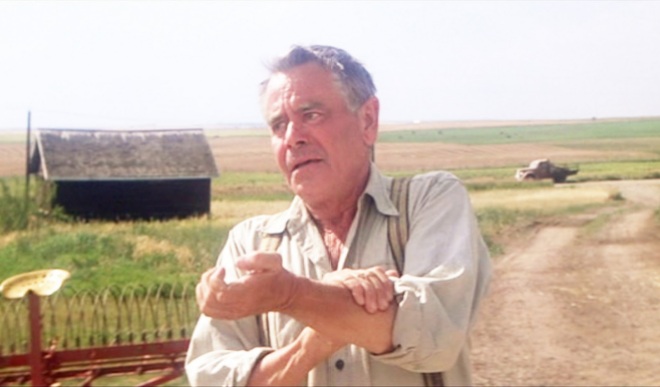
This is one of those themes that’s been prevalent in Superman comics for ages and though it plays a lesser role here, it got really played up in Man of Steel, therefore I feel the need to talk about it. Jor-El was a brilliant scientist and leader on Krypton. He was personally responsible for creating the Phantom Zone and imprisoning General Zod after he tried to launch a Coup on Krypton. Granted this was a less pew-pew interpretation than Man of Steel, but it gets the point across. Plus we also get the great “You will bow down before me!” monologue from Terrance Stamp’s iteration of Zod (the one which Michael Shannon so deftly emulated in Man of Steel).
This version of Jor-El is reserved, but magnificent. I don’t care that Marlon Brando refused to memorize his lines and read from cue cards, the man sells it! Even at his least amount of care the gravitas that he generates lends such credibility to the camp and sci-fi elements of this movie just by not emphasizing those and telling a story about father’s love for his son. The monologue he delivers as Krypton is about to die and they send off Kal-El is one of the greatest scenes in cinematic history. He pours everything into this scene, just barely holding it together until the words “This is all, all I can send you.” Meaning that he can send his knowledge, his hopes and his dreams, but he will never really know the son he’s sending off. He will never see his first steps, never hear him speak. Russell Crowe is a great actor, but his best line is one that Marlon Brando used doesn’t have any memorable line. I think he said something about hope, but between the burning buildings and explosions I couldn’t really hear him.
Johnathan Kent in this movie pretty much has enough time to show up, adopt Clark, and then keel over. That being said, his death meant far more in this movie than it did in Man of Steel. I’m not just meaning on a Joseph Campbell kind of way, but in a way that establishes with all that power Clark still can’t save everybody. This fact stands in stark contrast to the end of the film, but I’ll dive into that later in the article. In addition, this Jonathan Kent isn’t afraid. He doesn’t die trying to convince his son not save people (including himself), and as Superman finally ascends to greatness at the end of this film, he’s not hearing Jonathan say “People are afraid of what they don’t understand.” He hears “You are here for a reason.” (And yes, I understand Costner Kent says the same thing, but tone is key. And in this movie Jor-El was the one telling him not to disobey the laws of nature to save someone, whereas in Man of Steel Costner Kent was telling him not to save anyone.)
Both fathers in both movies want to inspire Superman, but only in one of these movies do I feel hope, and it’s not Man of Steel
The Hero
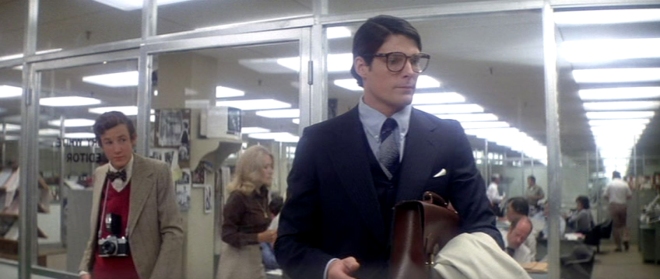
What Christopher Reeves brings to the table is a dichotomy to the role. He shows Clark and Supes as two different people; one a bumbling clumsy reporter and the other is, well, Superman. But the thing that really makes his performance unique is the heart he brings to the role. He shows the well of emotions that Clark usually hides behind his glasses and what Supes keeps under his crest. His portrayal goes beyond the comic book tropes and grounds it in a desire to live and save people. Christopher Reeves is Superman. That’s probably why it’s been so hard to find a suitable replacement.
This is what the two movies have most in common. Superman is the best of us, he is a moral compass and a leader. He is a man divided between two worlds, being raised by two men each with a desire for him to be the best man possible. The difference in how he’s portrayed is largely in the tone of the film and not in either actors performances. Both play him as a morally upstanding, straight talking, and self assured man, but the world of Man of Steel is much darker than Superman. Both have darkness in them, if in different degrees, and in both Superman is forced to make a moral choice. The difference is that the Supes in Man of Steel always makes a choice where people die, like when he blew up the ancient Kryptonian ship and killed the rest of his species. In Superman he is forced to deal with allowing people to die or not allowing it, and that really has to do with what’s at the heart of the movie
The Heart
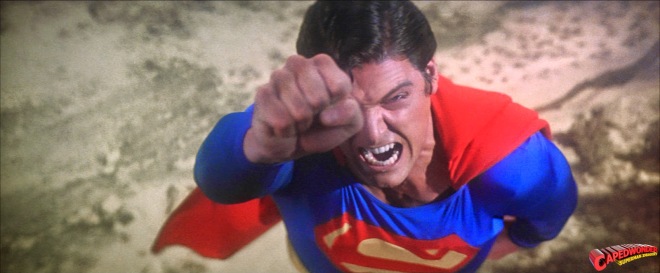
Superman is not a bleak movie. It’s not a gritty crime noir that follows an antihero. It’s not even a drama about family. It’s a movie full of fun and hope and a hero that is uncompromisingly good. This version of Superman cannot accept the fact that he can’t save everyone. When Jonathan Kent died he didn’t know how to save him, but when Lois died he could save her. That scene in particular carries so much weight, more so that any single scene in the melodramatic swirl of Man of Steel. I was reading an article while I prepared for this that perfectly summed up what makes this movie great. It said, “He’s special because … he was raised by a couple of decent people from Kansas.” Superman has all the powers of Zod. Nothing in his nature predisposes him to be a good person, yet he doesn’t deal with the same moral conflicts that the average person does, and that’s because of how he was raised. He’s a good person and he wants to to the right thing because it’s the right thing. The moral complexity that Superman has to deal with it whether or not he can really be with the people he loves versus saving the world, and that is something this movie, and it’s sequel, did so well that now movie studios are afraid to rehash it. Until they quit throwing Superman in a color neutral world, he’s not going to be fun again.




